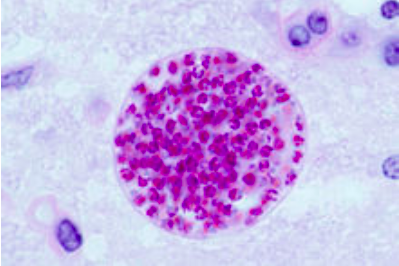By: Amanda Ojeda
Some gray wolves are natural born leaders. But hey, if they ever need a little extra nudge, there is something out there that can help them. It largely impacts decision making and makes one more likely to take risks, a trait crucial for pack leaders. This mysterious thing is not one’s diet, medication, or even state of mind. One simply needs to get infected with the parasite toxoplasma gondii, but do not be fooled, this infection isn’t all happy-go-lucky.
The wolves crucial in participating in this study were that of Yellowstone National Park. These wolves who were already infected with toxoplasma gondii demonstrated behaviors of heightened risk taking. This can either cause a wolf to rise to the top rank of leader in the pack, or result in a lone wolf who leaves the protection of the pack.
Connor Meyer, a field biologist at the University of Montana in Missoula stated, “Those are two decisions that can really benefit wolves, or could cause wolves to die.”
To give a bit more context as to what this parasite is, toxoplasma gondii, is generally found in cat’s small intestines, and can be transferred through cat feces. When other animals come into contact with the feces, they can contract the parasites. The most intriguing part however, is how similar the effects are across different species. Both mice and wolves for example become more likely to take risks, which can sometimes lead to their detriment.
In mice, the parasite erases the evolutionary instinct to fear cats, often resulting in their death. Wolves can face a similar fate, as this parasite makes them more likely to leave the pack, which goes against the evolutionary advantage of staying in a group.
Overall, the Yellowstone studies, which included 26 years of data, found that infected wolves were 11 times more likely to leave the pack, and 46 times more likely to become leaders. As of now, the leadership and social aspect have been the only aspects studied.
In future long term studies, scientists hope to study reproduction and survival rates in wolf packs with and without infected individuals. They would also like to study other species such as cougars who have notable amounts of infected individuals. This would mainly serve to prove how different social constructs between different species can affect the behavioral changes within infected individuals.

